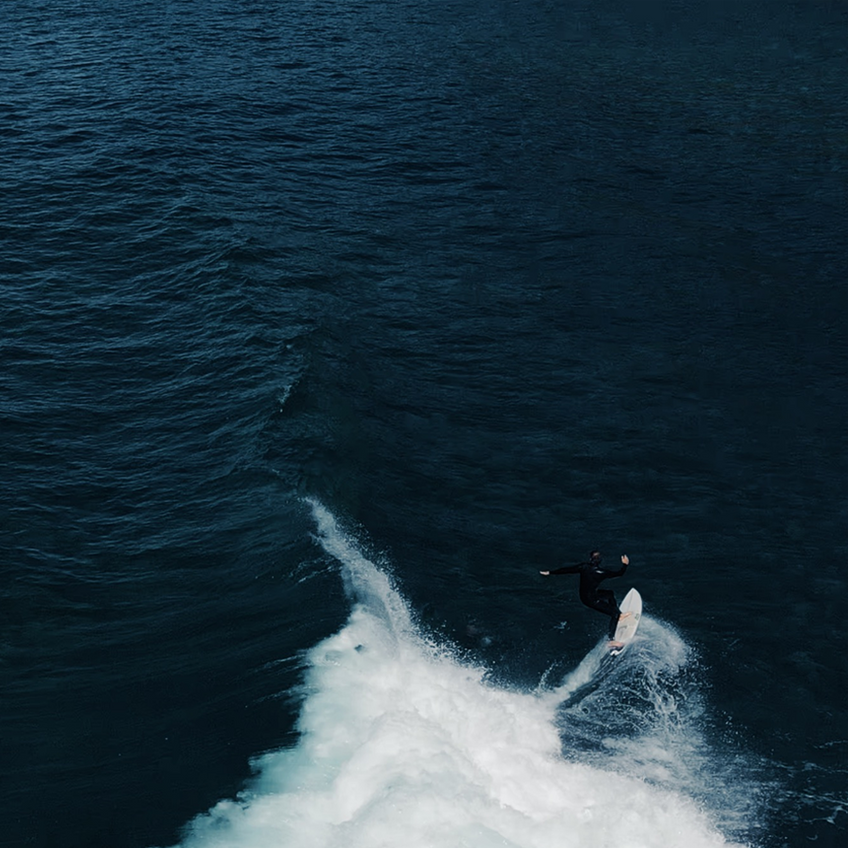You’re standing in a forest. The smell is fresh and earthy; it has just rained. A stream trickles through the undergrowth and birds fly through the canopy. You follow the paths made by badgers and boars, until you find an opening that looks up to the sky.
At TWOTHIRDS, it’s our aim to use the very best ecological fabrics we can find. Among those are the ones that start life as trees. From sustainably managed wood sources, to the hanging rail of your wardrobe - the three botanic fibres we use are extraordinarily low impact. To make matters easier, they all stem from the same supplier: Lenzing.

Headquartered in a small town of the same name in rural Austria, Lenzing have been producing world class fibres for years. Take TENCEL™ lyocell, a fibre that’s both more absorbent and breathable than cotton. We love the super soft texture and visual elegance of fabric made with TENCEL™ lyocell, as well as the knowledge that this has been produced with respect for the ‘Earth’s lungs’. Lenzing source their raw material almost exclusively from certified sustainably managed forests and steer well clear of ancient or endangered tree species. But the beauty of their botanic fibres is in what happens next!



At Lenzing biorefineries, felled logs are chipped into smaller pieces and dissolved into a gooey mixture, before being dry-spun into solid fibres. To break down and treat the raw material, wood-based fibres can require harsh chemical solvents that leak into the environment. Lenzing changed that. They capture, then reuse more than 99% of solvents in TENCEL™ lyocell production, closing the loop on waste. This system proved so innovative it won them a European environment award! Importantly for us, Lenzing also recycle and clean the water needed to create their fibres before returning it to waterways - preventing any knock-on effect for the ocean. Which is why we’re starting to introduce more and more of these materials, beginning with a vastly improved form of viscose: LENZING™ ECOVERO™ branded viscose fibres.



There’s a reason viscose - sourced from fast-growing trees - has become a fashion essential. Fabrics containing viscose fibres feel like silk while costing less to make. But standard production can create an environmental and social tragedy. One of the chemicals normally used, carbon disulphide, has toxifying effects that puts workers at severe risk of disease. Fuelled by unregulated fast fashion demands, some factories have also reportedly dumped contaminated waste into rivers - thereby killing off aquatic life.
Cut back to Lenzing’s own biorefineries and the picture couldn’t be more different. Clean production of LENZING™ ECOVERO™ viscose fibres, through an ‘efficient recovery of process chemicals’, prevents contamination from carbon disulphide. It also cuts CO2 expulsion by up to 50% in contrast to generic viscose. The quality of the final fabric only adds to its charm, being gloriously silky and durable. You’ll find this eco-responsible material in TWOTHIRDS trousers, such as the Alao and Ndao, as well as in blends for our tees.
To go full circle: our latest botanic addition comes in the form of TENCEL™ x REFIBRA™ technology. This breakthrough fibre combines cotton cut-offs and scraps with Lenzing’s favoured wood pulp to create virgin quality TENCEL™ lyocell fibres. Lenzing say this results in a 95% reduction of water impact compared to conventional cotton. More than this: it prevents landfill, stops waste and somehow manages to make TENCEL™ lyocell feel even better. Hopefully this circular textile signals a big shift in the way fibres are made. We’re delighted to be already using it in a limited number of styles.

All three of the Lenzing botanic fibres we use “come from nature and return to nature.” If you reach a point when you no longer want to use a garment made from one of these materials, you’ll be able to let it decompose naturally. In fact, they’ve been proven to biodegrade in marine conditions, making them quite literally ocean-friendly!
TENCEL™, LENZING™, ECOVERO™ and REFIBRA™ are trademarks of Lenzing AG.









